41 gmo on food labels
GMO Food Labels Do Not Affect College Student Food Selection, Despite ... US Public Law 114-216 dictates that food producers in the United States of America will be required to label foods containing genetically modified organisms (GMOs) starting in 2022; however, there is little empirical evidence demonstrating how U.S. consumers would use food labels that indicate the presence or absence of GMOs. New USDA guidance requires foods with GMO ingredients be labeled ... Foods that had been labeled as containing "genetically modified organisms (GMOs)" will now be known as "bioengineered," or having been "derived from bioengineering," under standards set by the...
GMOs: Is Just Any Label Enough? - Culture Vermont's GMO labeling law was promoted as purely informational and non-judgmental: consumers, lawmakers argued, regardless of their personal opinions, have a right to know what's in their food....
Gmo on food labels
GMO vs Organic: Key Differences Between Food Labels Oct 29, 2018 · The non-GMO label means the food product wasn’t made with GMO, but this doesn't mean it's organic. Organic foods are the most heavily regulated label. Purchasing foods with the "non-GMO" or "organic" label is your safest bet when it comes to overall health and minimal toxins. Organic and non-GMO labels are highly similar. GMO and the Nutritional Content of Food - Discovery Eye ... Feb 19, 2015 · Lableing of GMO Foods. National and state organic certification rules do not allow genetically engineered foods to be labeled “organic.” Organic products cannot be grown from GMO seeds; an organic animal product like beef, chicken or eggs must not have fed on genetically modified food. GMO Foods Will Be Labeled 'Bioengineered' - Verywell Health GMO foods will be labeled "bioengineered" with a logo like this. U.S. Department of Agriculture Cuite said that the USDA had originally proposed labels that didn't have words on them. When her team conducted research on the public perception of the original designs, they found that most consumers thought the symbol meant "happy" or "natural."
Gmo on food labels. Awareness, not mandatory GMO labels, shifts c | EurekAlert! Aug 29, 2022 · ITHACA, N.Y. – Six years ago, the state of Vermont passed what turned out to be a short-lived law mandating disclosure of genetically modified organisms, or GMOs, on all food products. That law ... Everything you need to know about GMO labeling in 2020 The law requires labeling only on bioengineered foods intended for human consumption that contain more than five percent GMO ingredients. Instances where GMOs do not have to be labeled include: Foods derived from animals, such as eggs, meat and milk Refined ingredients like oils and sugars Food served in a restaurant 6 Things You Need to Know About the New GMO Food Label 5. Non-GMO Labels and Bioengineered Labels Will Coexist. Foods that have detectable modified genetic material and are considered bioengineered will be identified on their packaging or label with ... Pros and Cons of GMO labeling - Understanding Today's Agriculture Labeling food that has GMO ingredients has become a very controversial and heated topic in todays society. Especially with more people wanting to go organic and wanting to be more careful about what they eat. GMO labeling could lead to many pros and cons so figuring out what the best choice is for both consumers and producers is very hard.
Understanding the GMO Bioengineered Food Labeling Law The term "Bioengineered" or "Derived from Bioengineering" foods are defined as food: "(A) that contains genetic material that has been modified through in vitro recombinant deoxyribonucleic acid (rDNA) techniques; and (B) for which the modification could not otherwise be obtained through conventional breeding or found in nature." What We Know About The USDA's New GMO Food Labels - Mashed.com The Standard requires food manufacturers to disclose, via label, any foods containing GMO ingredients, in order to consolidate and standardize the GMO labeling process. Although implementation began on January 1, 2020, the mandatory compliance date was not until January 1, 2022 (via USDA). Since that date has now come and gone, you should now ... Non-GMO food label sees jump in popularity, especially in states that ... Non-GMO Project Verified items saw much steeper growth rates than other products between 2019 and 2021, according to a report from the Non-GMO Project and SPINS. Sales of frozen products with the ... What You Need to Know About GMO Labeling - Consumer Reports Today in federal appeals court, the issue will be debated again. The Vermont Genetically Engineered Food Labeling Act requires that by July 2016 all food and beverages sold in the state—including...
GMO is out, 'bioengineered' is in, as new U.S. food labeling ... - NPR Some commonly bioengineered foods include corn, canola, soybeans and sugar beets. Most GMO crops are used for animal feed, according to the Food and Drug Administration. But they are also used to... Home - The Non-GMO Project The Non-GMO Project is a mission-driven 501(c)(3) organization (EIN 02-0799621). Your tax-deductible donation helps to expand our education and outreach programming; as well as ensures we can continue to build and protect our non-GMO future. Thank you. How GMOs Are Regulated in the United States | FDA - U.S. Food ... Aug 03, 2022 · FDA regulates most human and animal food, including GMO foods. In doing so, FDA makes sure that foods that are GMOs or have GMO ingredients meet the same strict safety standards as all other foods. USDA Proposes GMO Labeling Rules | Sierra Club On May 3, the USDA unveiled its long-awaited proposed GMO disclosure rule, which aims to provide food companies with guidance about how to label products made with genetically modified ingredients.Congress mandated standardized disclosure of GMOs in 2016. But implementation has been slow, due largely to a deluge of questions over which foods should be covered, and with what types of labels.
Think New GMO Food Labeling Law Will Help You Avoid GMOs? Think Again. Welcome to 2022 and the shiny new federal labeling rule that will require manufacturers to disclose when foods are bioengineered! Sort of …. The new law essentially replaces a patchwork of state regulations regarding the labeling of genetically modified foods and food products. Unfortunately, the law is sure to create confusion and make it ...
GMO Food Labels | USDA Remark : By this time next year all foods with more than 5% GMO ingredients will have to be labeled as such. Will it help or confuse us? Gary Crawford reports. PARTICIPANTS: Gary Crawford and Karen Blakeslee, Kansas State University Extension Food Safety Specialist and Coordinator of the Rapid Response Center for Food Science.
What is a GMO? - The Non-GMO Project A GMO, or genetically modified organism, is a plant, animal, microorganism or other organism whose genetic makeup has been modified in a laboratory using genetic engineering or transgenic technology. This creates combinations of plant, animal, bacterial and virus genes that do not occur in nature or through traditional crossbreeding methods. Genetic modification affects many of
GMO Labeling | Science of GMOs Voluntary labels stating that foods are non-GMO are widely available. Foods and food products that are certified as organic by USDA's National Organic Program meet a set of standards that prohibits all use of GE technology in organic food production and processing, so the USDA Organic label indicates that foods do not contain GMO ingredients.
GMO labeling laws 2022 — Body By Amanda It has always been clear in the past and easy to pick out foods that didn't contain GMO's, until January 1, 2022. As of recently the FDA decided to change the labeling to "get rid of the confusion of different labels for foods and ingredients that have been scientifically tampered with, according to the U.S. Department of Agriculture".
GMO Foods Should be Labeled, But Not for Safety: Bioethicist - NBC News Absolutely yes. But, not for the reason that is dividing Americans over GMOs. The New York Times reports that the giants of the food industry are deeply split over the labeling issue. Monsanto and ...
How GMO Labels Affect Customer Decision Making with Food Purchases GMO labeling reduces the demand for GM foods. The signal contained in the GMO label also affects consumer choice. Even a neutral GMO label may lead consumers to focus on the negative aspects of GMOs, pay less attention to price information, and become more reluctant to make a purchase in the product category.
GMO Food Labels Do Not Affect College Student Food Selection, Despite ... US Public Law 114-216 dictates that food producers in the United States of America will be required to label foods containing genetically modified organisms (GMOs) starting in 2022; however, there is little empirical evidence demonstrating how U.S. consumers would use food labels that indicate the p …
How GMO food labels impact consumer choices GMO labeling reduces the demand for GM foods. The signal contained in the GMO label also affects consumer choice. Even a neutral GMO label may lead consumers to focus on the negative aspects of...
Why is organic food more expensive than conventional food? Non-certified organic food. In many developing countries, there are agricultural systems that fully meet the requirements of organic agriculture but which are not certified. Non-certified organic agriculture refers to organic agricultural practices by intent and not by default; this excludes non-sustainable systems which do not use synthetic ...
Preparing for GMO labeling in 2022 - Food Business News Manufacturers will be required to label products containing GMOs by 2022. The standard mandates the use of the term "bioengineered" instead of "GMO" in disclosures. It also allows a 5% ingredient...
Non-GMO Project Verification | NSF Since 2008, the Non-GMO Project has verified more than 60,000 products from over 3,000 brands. Verification to the Non-GMO Project Standard represents best practices for GMO avoidance and may include testing of high-risk ingredients in product formulations.
Should GMO foods be labeled? - News Should GMO foods be labeled? In the ongoing debate about whether or not genetically modified foods should be labeled, some maintain that consumers should have the right to know all about what's in their food. Others insist there's no evidence that such foods harm health and that labeling isn't necessary.
GMO Labeling Laws per Country - Global Food Safety Resource Most of the countries in the EU region, Australia and New Zealand implement mandatory labeling with up to 1% labeling threshold of GMO content. Some Asian countries, Brazil, South Africa and Ukraine also implement mandatory food labeling on many of their GE foods but with higher threshold for GMO content.
Food Fight: The Debate over GMOs and Food Labeling A GMO is a plant or animal whose genetic material has been altered in a laboratory so that its DNA contains one or more beneficial genes that do not normally exist. For example, genetic modifications to GMO corn and soybeans have allowed those crops to be less susceptible to disease and pests and more drought tolerant.
What do GMO-free and natural labels mean? | Plate-Wise If a food is labeled as genetically modified organism (GMO), then we know that it has been "derived from organisms whose genetic material (DNA) has been modified in a way that does not occur naturally." 1 The confusing part to me is that GMO labeling can imply the superiority of non-GMO foods, and that's simply not true.
GMO Foods Will Be Labeled 'Bioengineered' - Verywell Health GMO foods will be labeled "bioengineered" with a logo like this. U.S. Department of Agriculture Cuite said that the USDA had originally proposed labels that didn't have words on them. When her team conducted research on the public perception of the original designs, they found that most consumers thought the symbol meant "happy" or "natural."
GMO and the Nutritional Content of Food - Discovery Eye ... Feb 19, 2015 · Lableing of GMO Foods. National and state organic certification rules do not allow genetically engineered foods to be labeled “organic.” Organic products cannot be grown from GMO seeds; an organic animal product like beef, chicken or eggs must not have fed on genetically modified food.
GMO vs Organic: Key Differences Between Food Labels Oct 29, 2018 · The non-GMO label means the food product wasn’t made with GMO, but this doesn't mean it's organic. Organic foods are the most heavily regulated label. Purchasing foods with the "non-GMO" or "organic" label is your safest bet when it comes to overall health and minimal toxins. Organic and non-GMO labels are highly similar.



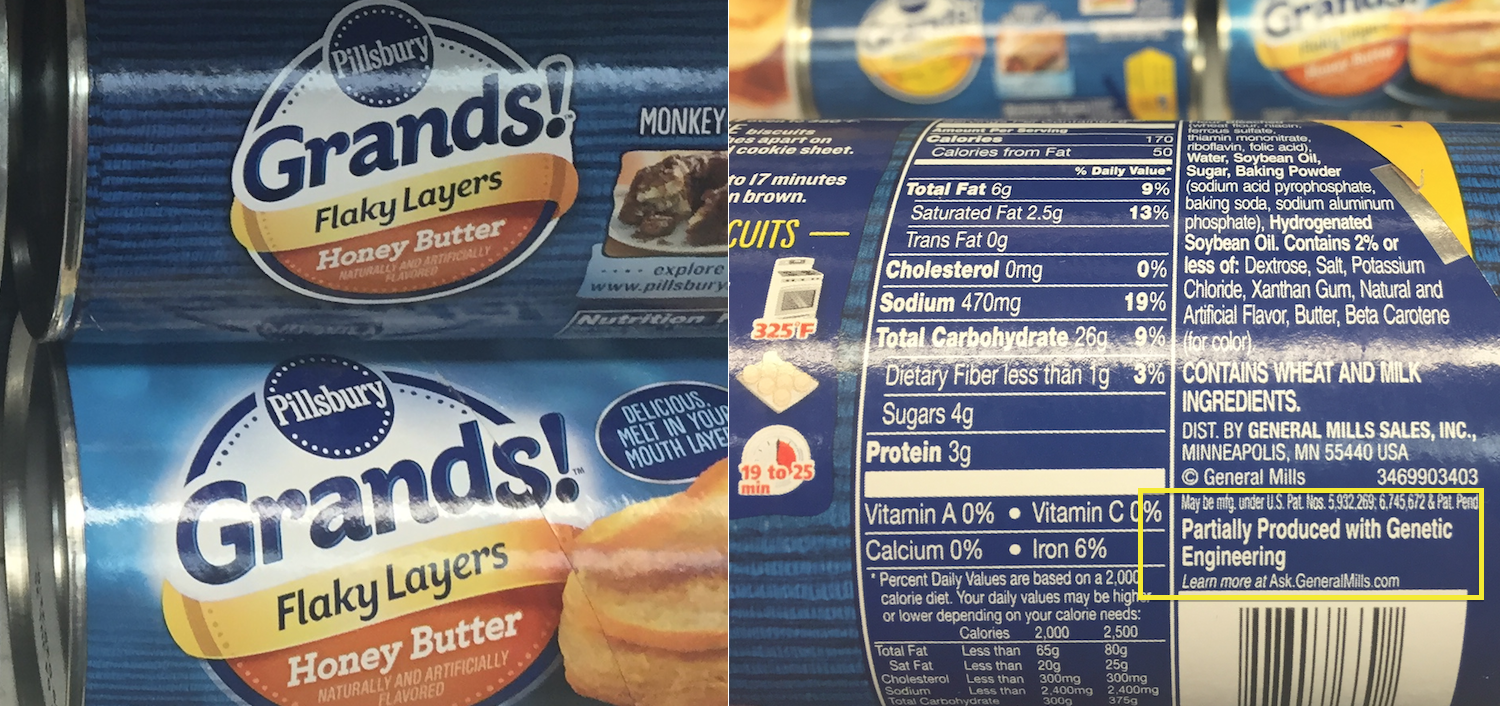
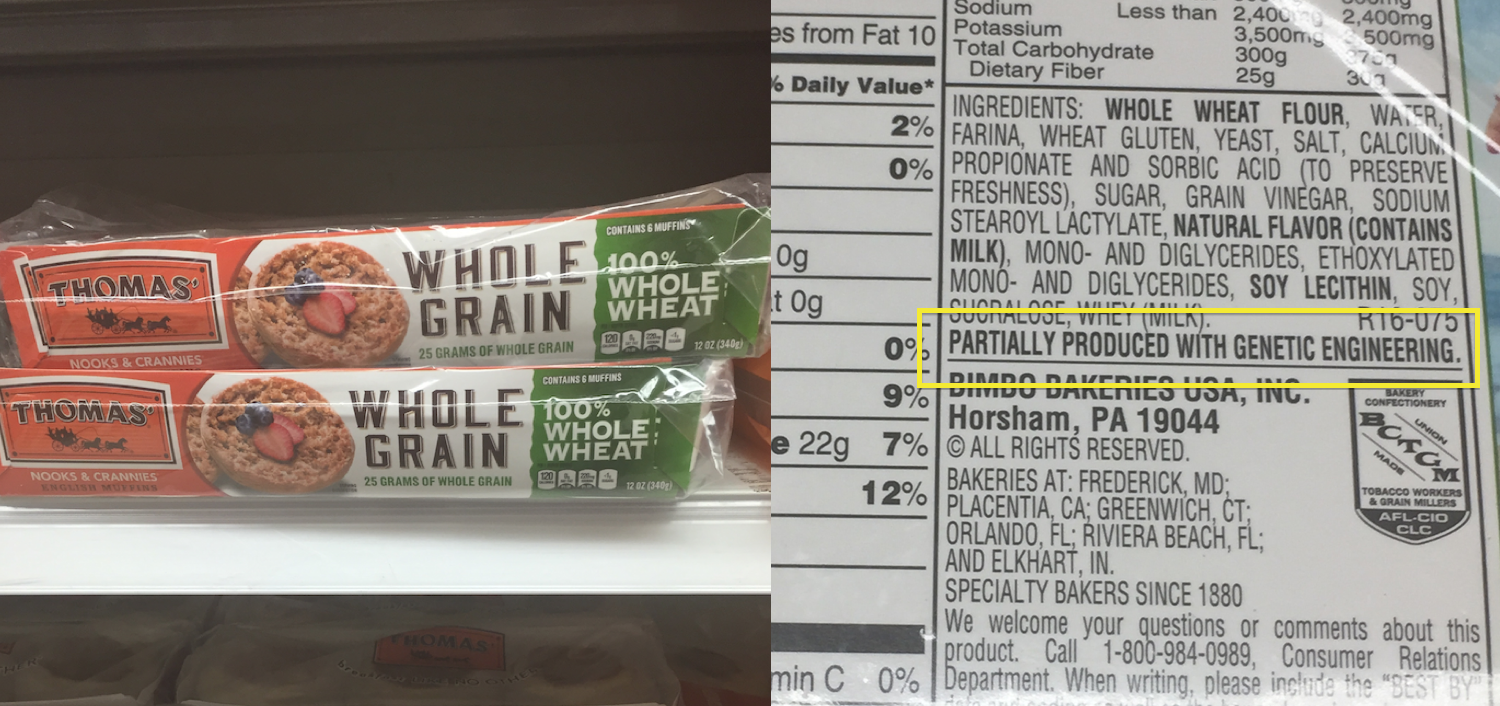







/cdn.vox-cdn.com/uploads/chorus_image/image/60201529/gmolabelbill_custom_46bd1ad501cdee90a9a3b87506c719c1ef35eecc_s900_c85.0.jpg)

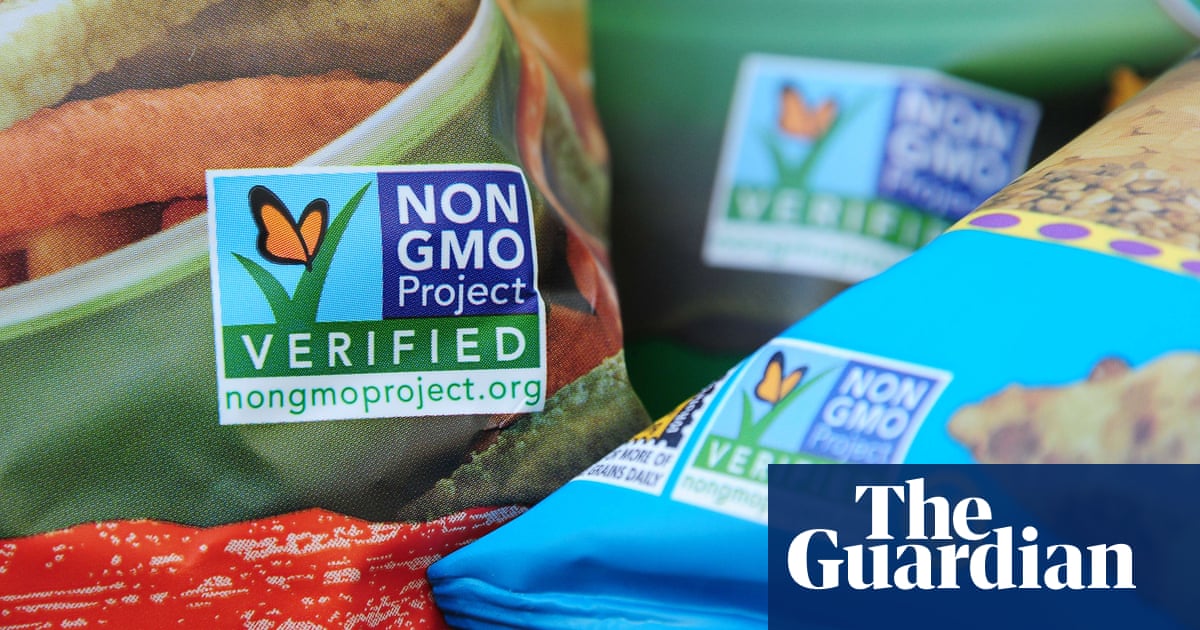
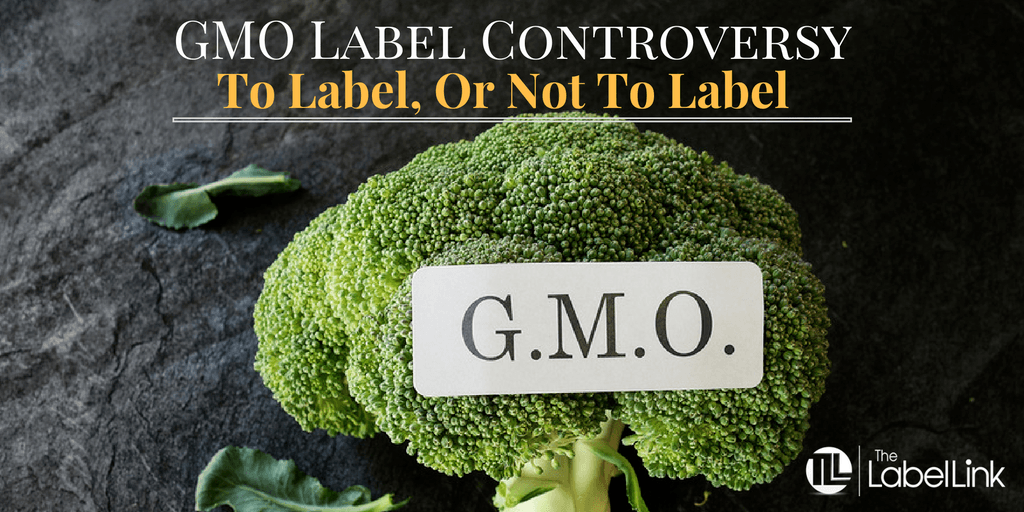

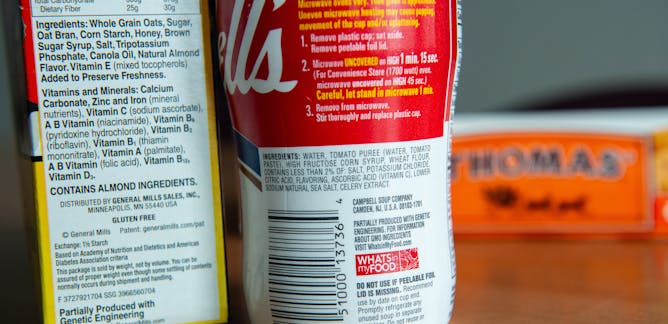

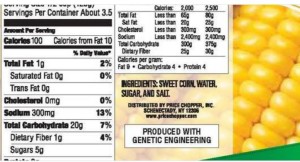
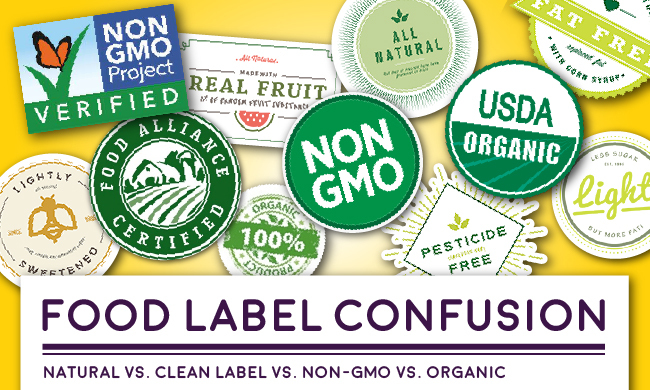
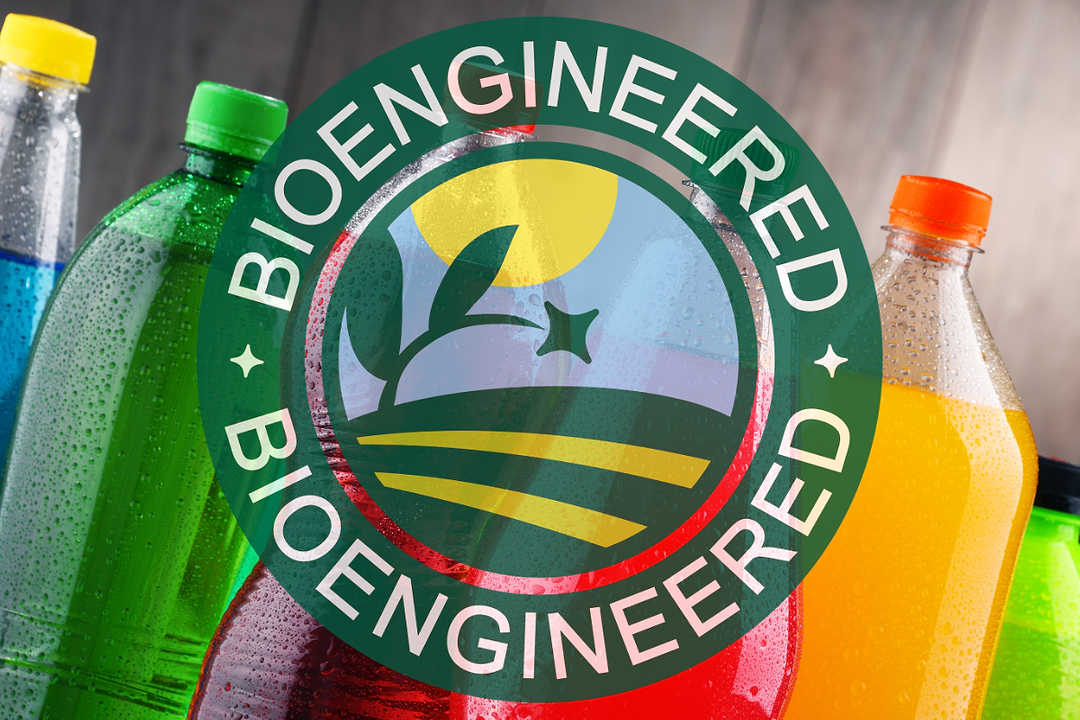

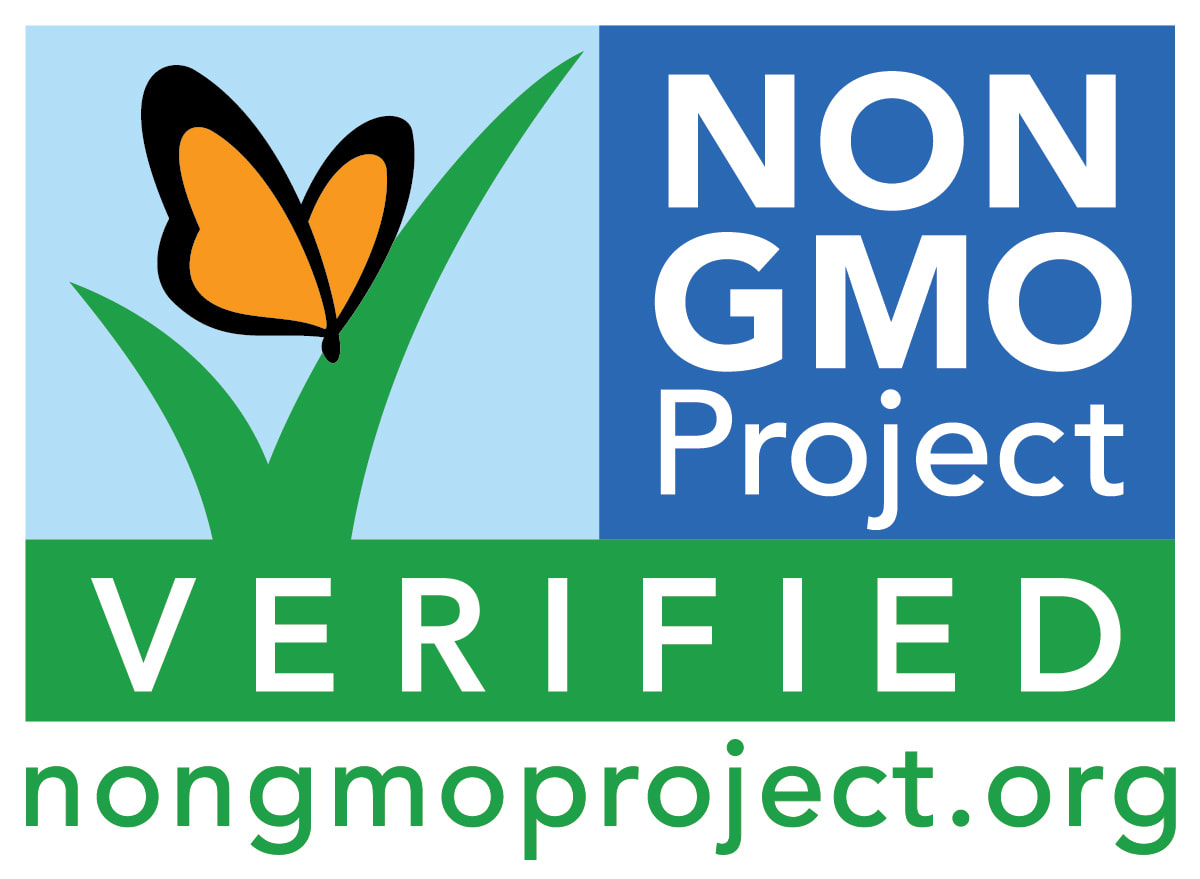

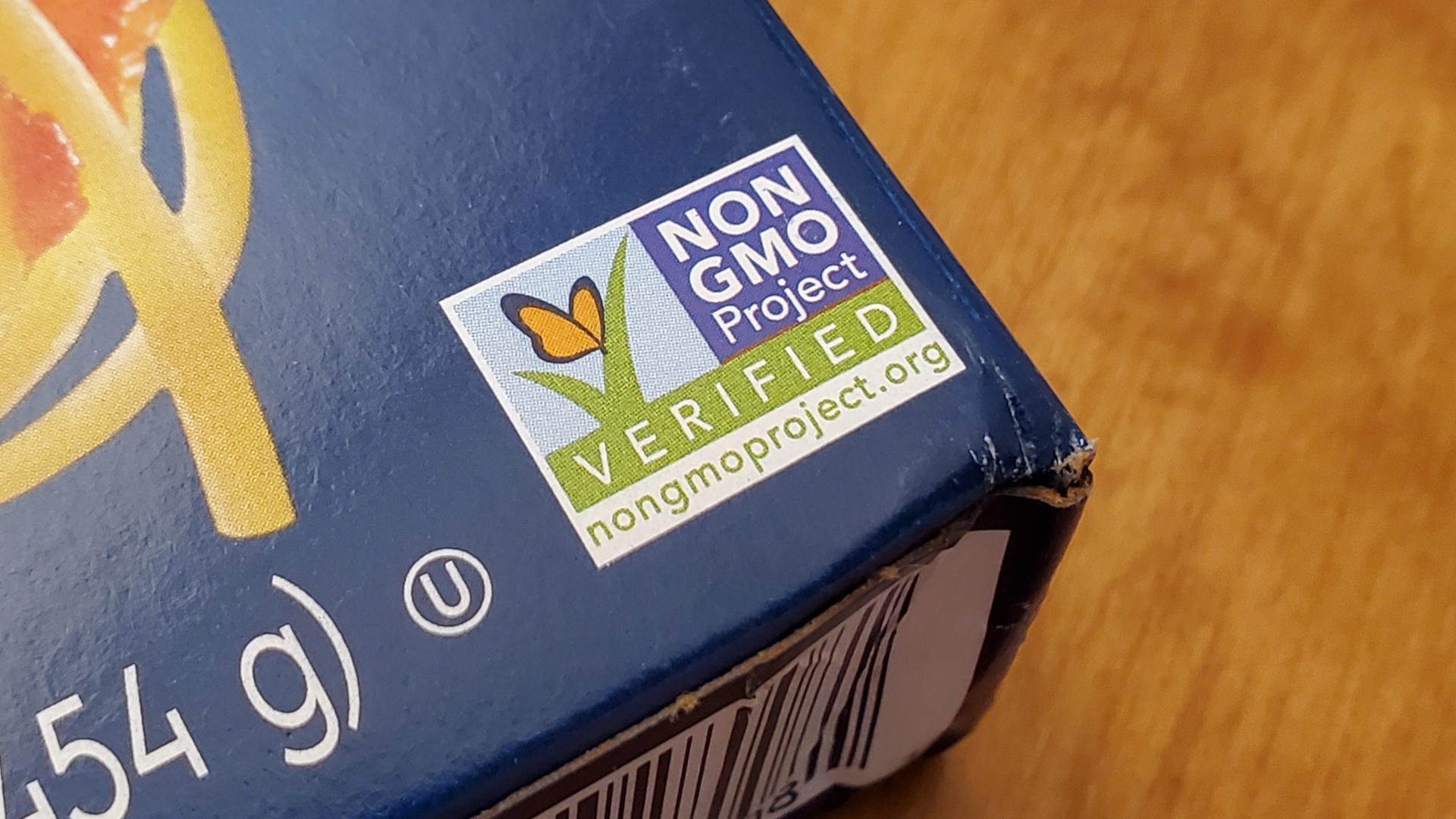
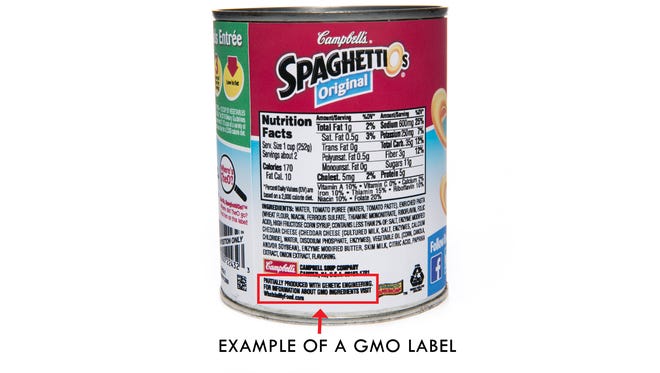

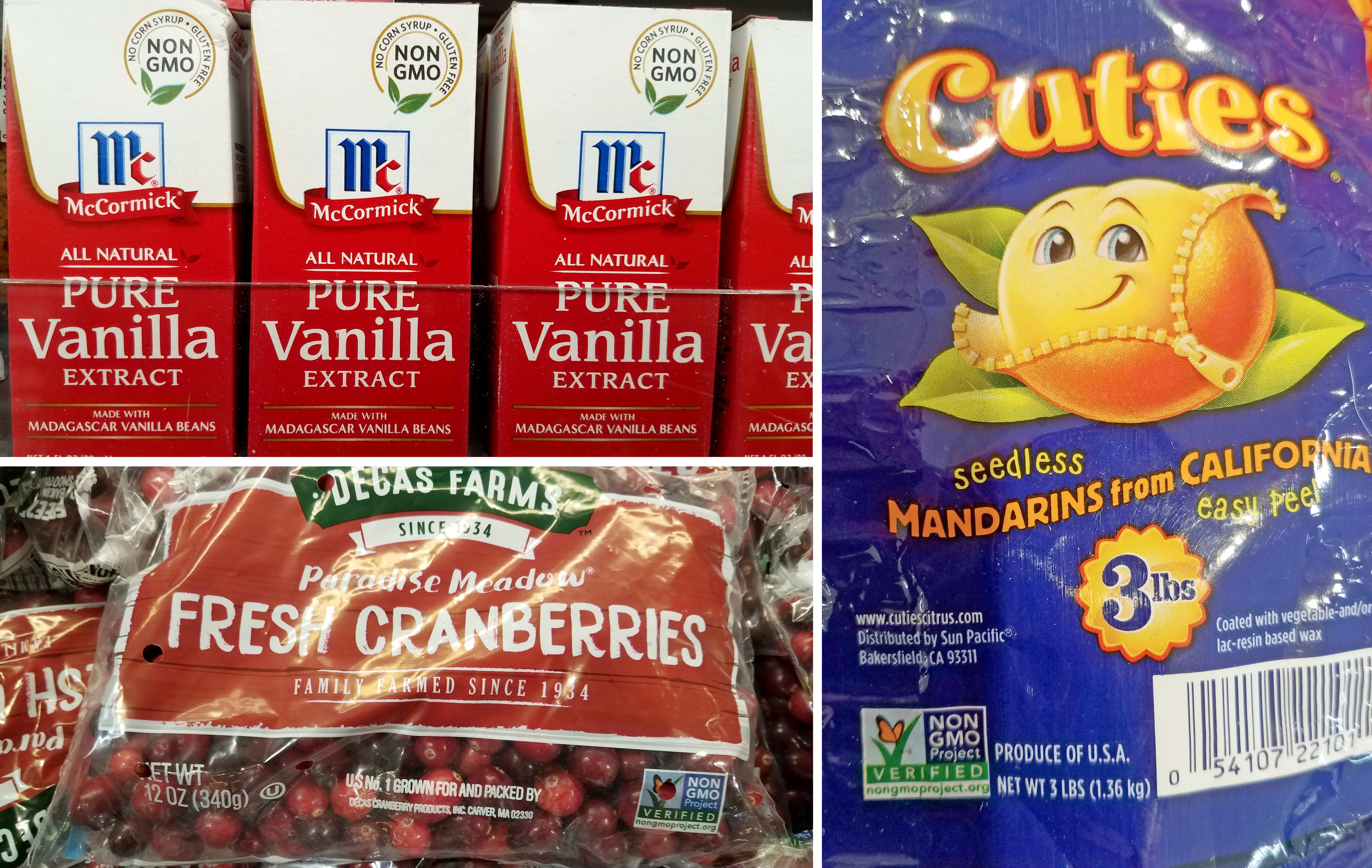

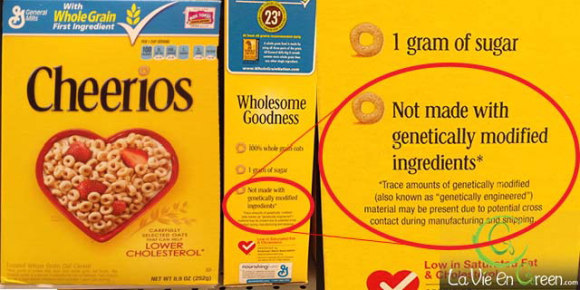


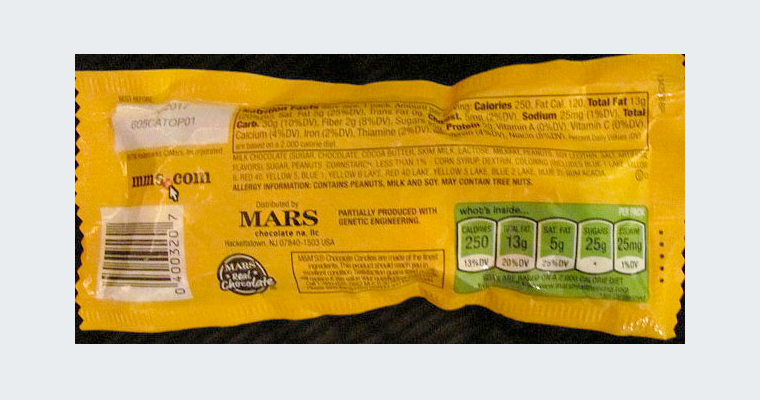
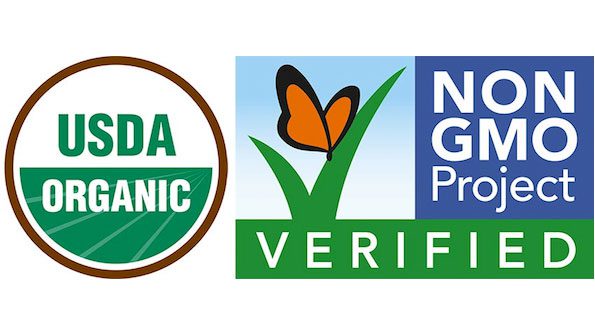




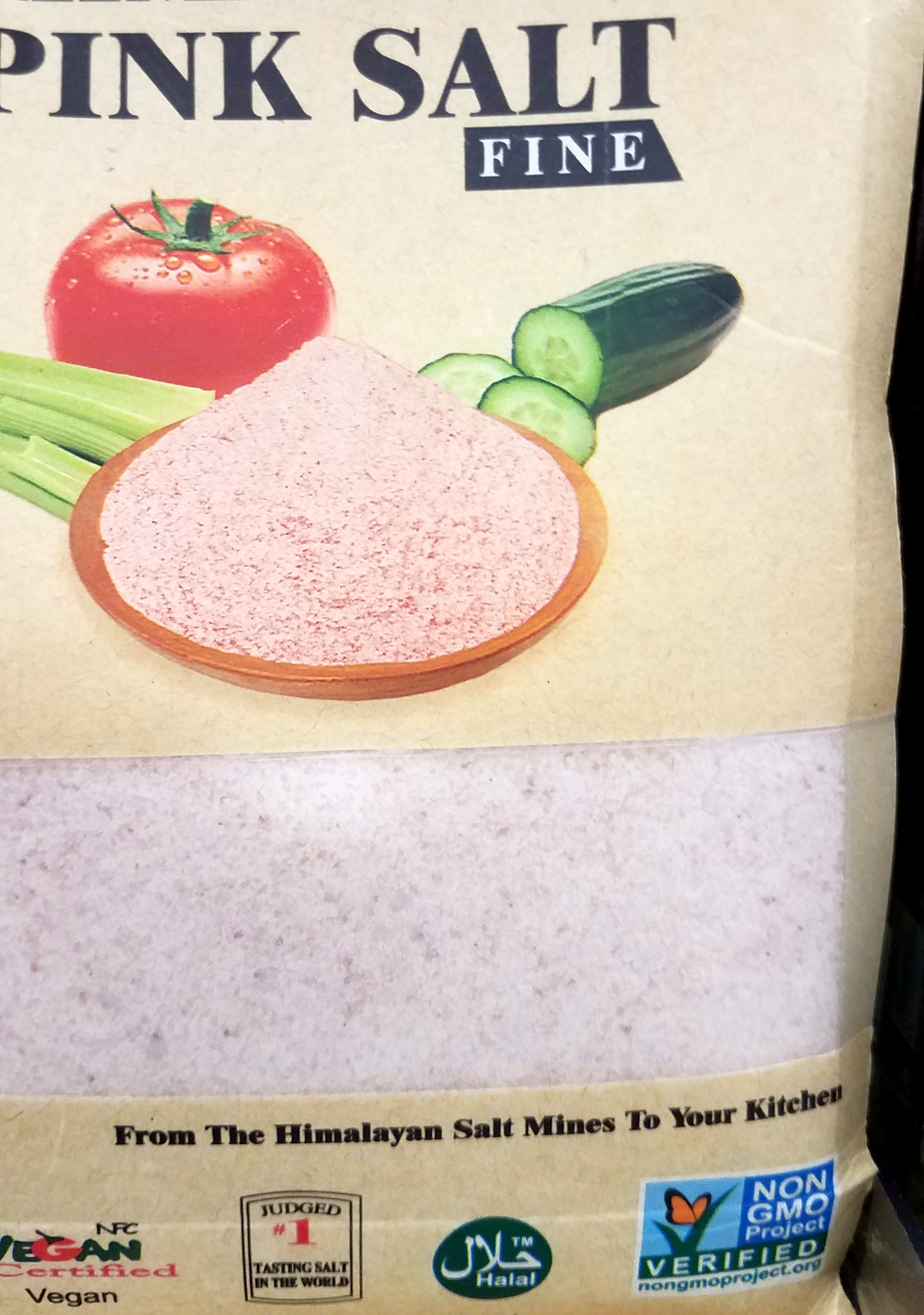
Post a Comment for "41 gmo on food labels"